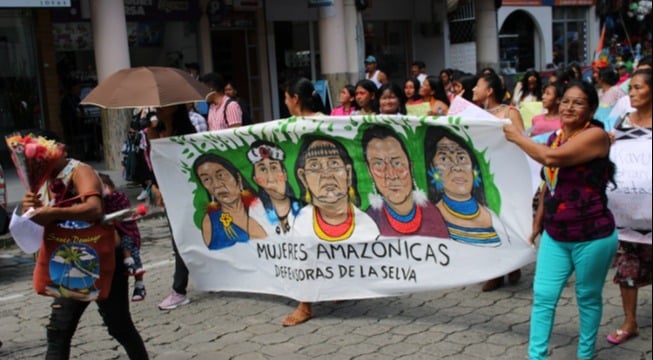Indigenous Rights in the Amazon
Indigenous rights in the Amazon have been continuously under threat as large development and infrastructure projects destroy Indigenous land and culture.

What are Indigenous Rights?
There are over 450 million Indigenous peoples in the world, many of whom are denied basic human rights. In 2007, the United Nations General Assembly adopted the U.N. Declaration on the Rights of Indigenous Peoples, which affirms human rights specifically for Indigenous people and their specific conditions. It mainly sets out the individual and collective rights of Indigenous people to have their sovereignty recognized, to maintain their distinct cultural identities, to live free from discrimination, and to have secure access to the lands and resources essential to their ways of life.
Struggles of Indigenous Peoples
In large parts of the world, Indigenous peoples are among the most socially marginalized groups of society. They have historically struggled with the following disadvantages:
- Discrimination (education, health care, labour market, legal representation)
- Underrepresentation at the political level
- Forced assimilation or even destruction of their culture, including the loss of their own language, spirituality, and medicinal wisdom
- Land grabbing and forced relocation
- Destruction of their lands and resources
- Violence, and in some cases genocide.
Current data gathered in North America also indicates that Indigenous women become more than 2.5 times more likely victims of sexual violence.
Indigenous Rights in the Amazon
Around 400 Indigenous groups call the Amazon rainforest their home.
Although a large number of Indigenous people from the Amazon now live in cities and towns outside of the rainforest, there are still several groups who live within and depend on the rainforest for their livelihood.
As governments in the region pursue economic development, including investments in mining, petroleum, hydrocarbons, and timber, they increasingly encroach on the territories of Indigenous communities. Moreover, infrastructure projects such as the building of large roads, pipelines, ports, airports, and the commercial use of rivers have destroyed nature and taken away essential resources. This development raises a lot of Indigenous rights issues in the Amazon region.
Land Rights
Indigenous lands in the Amazon are increasingly under threat from resource extraction, cattle ranching, soy farming, and other industries. Land titling has become key to securing Indigenous land rights and protecting the rainforest.
Oil Development
Oil development in the Amazon has a long history. With growing global demand and large reserves still untapped, oil is a continuous threat to Indigenous peoples and their ways of life.
Prior Consultation
International law requires governments to seek prior and informed consent from Indigenous people before embarking on any development project on their lands. Indigenous peoples in the Amazon have won landmark cases that uphold this important human right.
Indigenous Rights and Us
What do Indigenous rights have to do with us? A lot, it seems. How much energy we use, what products we buy, even the medicines we take have an impact on Indigenous rights in the Amazon.
Stay Connected to Our Work
Get a digest of Pachamama Alliance news, events, and resources in your inbox every other month, plus breaking news about our work.
